Next year’s TV lineup: Bullish and optimistic or repetitive and safe?
Mumbrella’s Zoe Samios looks back on the three major commercial networks upfronts, and asks media agencies whether the lineup could be just what the broadcasting industry needs in 2018.
This year’s upfronts were the opportunity for the industry to put a challenging year behind them.
Seven kicked off the year with an unfinished legal battle, Ten fell into the hands of administrators before finally being acquired by CBS yesterday, advertising revenues have been flat and broadcasters continued the fight against digital giants Google and Facebook.
For the most part media agencies see 2018 as being a brighter year for TV, appreciating the “self-deprecating” humour of Seven, Nine and Ten and strength of “brand safe” programming across the networks.
Chris Walton, Nunn Media’s managing director goes as far as to say it made him “believe again”.
“If you think about it, every network has got their reasons for looking back on 2017 as being a year they’d probably rather forget than put in the photo frame and stick on the mantelpiece,” he says.
“There are green shoots in a more positive sense in the market. They all in a different way were all quite bullish about the future, and then did a pretty good job of explaining why. It was good.”
Is next year too brand safe?
Next year sees the return of some of Australia’s favourite shows – Australian Ninja Warrior, My Kitchen Rules, The Block, Married at First Sight, The Bachelor and The Bachelorette, Australian Survivor and Little Big Shots – to name a few.
Then there’s the sports lineup, including one off events such as the Pyeongchang Winter Olympics and Commonwealth Games, as well as The Australian Open, NRL, AFL and BBL.
And the above will be entwined with a series of new shows and well loved series, including Australian Spartan, Buying Blind, Street Smart, Back with the Ex, Shaun Miccallef’s Talkin’ ‘Bout Your Generation, and Russell Coight’s All Aussie Adventures.
But Victor Corones, managing director of Magna Global Australia, says the offering might just be too safe.
“I’ve got to say outside of Seven’s Commonwealth Games, when I look across the content that’s coming down the pipeline, I don’t feel like there’s any game changers – you know something that could really propel a network,” he says.
“I feel like all the content that’s coming through is more mid tier programming. There’s not there’s not really amazing standouts that are jumping out at the moment and that’s really tough when you think about when you’re watching all three networks giving us a glimpse of what those shows are going to be about,” he says.
The year just gone did see some stand outs, with Little Big Shots, Australian Ninja Warrior, True Story with Hamish & Andy all delivering huge audiences.
But some shows weren’t as successful, such as long-standing series The Biggest Loser, Hell’s Kitchen and The Last Resort.
Corones says relying on existing franchises will drive them into the ground.
“The challenge is if you don’t commit to innovation and creativity you just become bland and less relevant. And really what you want is to make sure that you’re putting compelling content out there that consumers will hunt out,” he says.
“The biggest challenge within TV is it’s really easy and lazy to copy each other. And you know we’ve seen it in other genres in terms of cooking shows and things like that usually the first to market is the most successful in terms of franchise.”
But why are they playing it safe?
Nicola Lewis, Mindshare’s chief investment officer says the “safe” formats come from each network’s awareness of the challenges of linear TV.
“There was a big focus – naturally – on the tent poles and the proven formats, however a conservative approach to programming outside of that,” she adds.
But she believes the clear focus on addressable models will set them up for the years to come.
Seven in particular presented advertisers with almost a completely renewed second slate in 2018.
Sarah Keith, Publicis Media Exchange’s managing director, admits sponsorship can be difficult with entirely new programs.
“The sponsorship element is always tricky with something new and unproven, where you might be persuading a client to invest in something that may or may not work. But from a general consistency of TV product point of view I don’t think it’s a major issue,” she says.
But she assures Mumbrella: “If something isn’t working, Seven are very good at moving or altering it so you’re assured those ratings are there.”
Keith says between the three commercial networks, there’s enough shows where advertisers will be able to buy audiences.
A new introduction to Ten’s 2018 line up is pilot week – a week in the middle of the year featuring several premieres of new programs.
Walton believes it’s a smart move, as it plays to where the Australian consumer is and gives advertisers a taste for some fresh content.
“The Australian consumer has both got a high benchmark for the kind of content he wants to watch, but also the Australian consumers want to watch a depth of different types of content,” he says.
“It also enables the networks to be able to effectively plan and invest in that content.”
Corones is more skeptical: “You’re going to put a lot of marketing into getting consumers to tune in to all these new pilots. I guess the question then becomes what happens to the pilot after the pilot week – what happens to the viewers that were fans of that show if it gets axed or if it gets pushed somewhere else?
“They’ve got to be really careful on how they manage consumers through that journey particularly if they’re going to take time out to watch those shows.”
Amelia Ward, head of digital at PHD expresses a similar response, but is interested in the initiative.
“It could be a way of creating PR opportunity and buzz, or conversely be used as a way to fill a non-ratings week. Keen to see how this pans out and whether it becomes a feature within the marketplace,” she says.
Across the three major commercial networks what was also apparent was the sizeable amount of dating shows – namely The Bachelor, The Bachelorette and First Dates Australia, and now Back with the Ex, Bachelor in Paradise, Love Island and Blind Date.
Amplifi’s newly appointed chief investment officer Ashley Earnshaw isn’t concerned by the various dating show formats, as Australians continue to engage with content.
“What’s important is, at the moment, there’s demand for that content and where there’s demand for it, I guess it’s cost effective to produce, then we’re gonna see more of it,” he says.
“The Bachelorette in Paradise will do extremely well. I think there was comments overnight about, is there gonna be fatigue in the franchise? I don’t think there will be.”
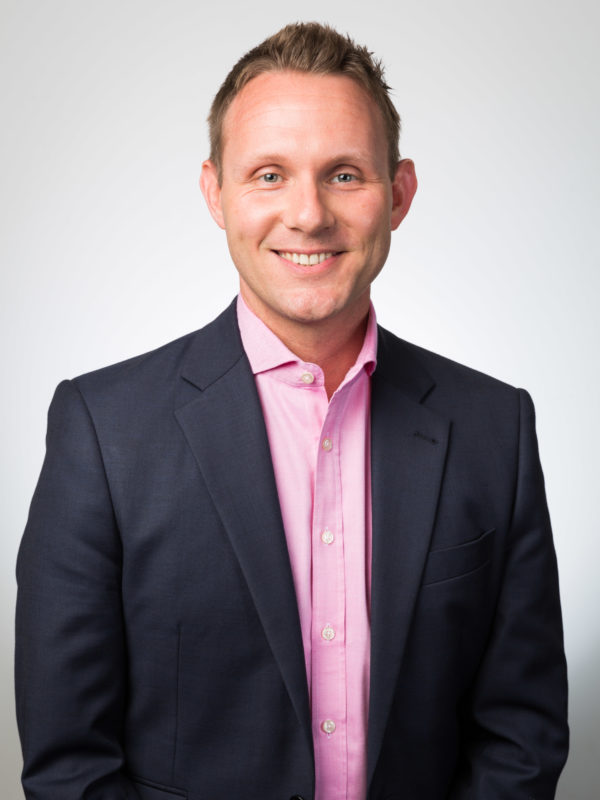
As long as Australians engage with content, Earnshaw is not concerned about the number of dating shows on TV
But while Ten’s content boss Beverley McGarvey was also confident audiences won’t tire, Walton isn’t so sure: “How much Bachelor is too much Bachelor? There’s going to be three of them next year. Bachelor in Paradise might do very well, because it’s the first one of the year, and people know a lot of the people who are in it, but will that have a negative impact or a positive impact on the later Bachelors? That’s something that we’d obviously be watching.”
For Earnshaw, despite some strong offerings – including new Delta Goodrem’s new drama Olivia and Underbelly: Chopper, he believes drama was lacking across the board.
“I wonder whether Netflix has had a big impact on the ability to compete in drama as much,” he says.
“When you look at what Netflix has set up, the amount they’re investing into content, I think that what we observe from the local networks is that they can do extremely well without taking very expensive risks in drama.”
For Walton, the area which presented a challenge was comedy. He points to Ten’s new show Street Smart, which he believes will be hard to execute well.
“Ten asserted that they want to differentiate themselves on comedy. That’s very hard to do. Yes, they’ve got the established ones, Have You Been Paying Attention Yet and Russell Coight,” he says.
But he saluted Ten for focusing a lot on the programming backbone – news, current affairs and Family Feud – more so than the other networks.
“Those three strands TV, news and current affairs, as buyers, you need to, for the audiences that go into those, you need to know that the innovation there remains, that the strength of the proposition there remains, and again, Ten focused on that, Seven much less so.
“If you’re talking to buyers, they want to know that that strength is going to remain. Maybe Channel Seven took the view that they didn’t need to, it will be strong,” he says.
Agencies are also not concerned about the termination of the deal with 20th Century Fox, telling Mumbrella they don’t believe it will affect the brand.
Ward says The Simpsons doesn’t have the same pulling power as it used to, and Keith tells Mumbrella people have actually moved on from the days where Ten was associated so heavily with The Simpsons.
“The Simpsons has been on for a long time – I think it’s moved on. It moved off the main channel a long time ago,” Keith says.
“People think about things like Bondi Rescue, the Living Room, now even I’m a celebrity, Gogglebox and Masterchef.”
A multi-platform content company? Or still a television broadcaster?
Elements of this year’s upfronts- 9Honey’s revamp, the removal of Plus7 from Yahoo7 and the launch of tendaily – suggest traditional linear television companies want to move the conversation forward.
Corones says the idea of an “entire video ecosystem” was apparent from the three commercial networks.
“There’s still this heavy reliance on linear TV and that tends to be their greatest focus. But definitely I got more and more of a sense from each each network talking about how their digital assets were coming together to further extend platforms to launch new shows through their video assets.
“There was an appreciation that they now need to be looking at consumers across any point in time on any platform and not just on the linear TV service.”
For that reason, Corones feels Nine is most progressed.
“Maybe that’s through their learnings of Stan and being exposed to understanding what consumers are doing in that space,” he notes.
“A lot of the messaging that came through was talking about how they could use 9Now in conjunction with everything else they were doing.”
Lewis felt they had the most well-defined video and content strategy – which spans across the next 18 months: “I’d say from a corporate strategic perspective Nine seemed very aligned you know across all of their assets across all of their channels across all of their platforms.”
Earnshaw agrees: “Nine were the most blended of the three TV networks outside of what MCN do. I thought Nine did a good job of blending themselves. I guess they did a good job of blending themselves as technology and TV network and I think that Seven felt the most strongly linked to television to me of all of them.
However he notes it is hard to compare with Ten, given their sales house sits with MCN.
Will advertisers be spending more or less on television next year?
Now the window shop is over, advertisers will look more closely to see where they will invest their spend, and with new content, a focus on ad-based streaming services and data play, advertisers may look to invest more.
Looking to next year Kim Portrate, Think TV’s CEO says the focus will continue to be on the entire video ecosystem. She’s still confident television has a strong audience and advertisers will spend more in the medium.
“From a broadcaster’s point of view their ability to meet the needs of advertisers to grow their business – I think they’ve demonstrated that, and from an agency point of view they’re showing that they’re interested in working with agencies to make sure that it’s an efficient and simple system you try to it out,” she says.
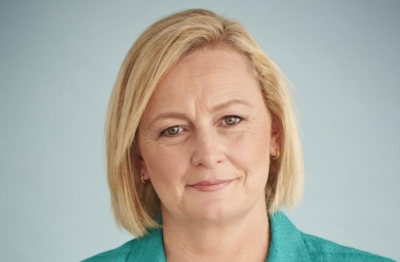
Empirical evidence provided by Think TV has renewed faith in the power of the platform, argues Portrate
“This notion of growth of video is something that can be capitalised on for phones and tablets and then obviously agencies and others can commercialise that.”
While she admits Google and Facebook will continue to be “fierce competitors”, she is confident the empirical evidence which shows the power of television will reinforce ad spend.
“You could see different organisations will be pushing forward into technology and content and connecting with audiences across the board so whether that was 9Galaxy or SIA from MCN or addressable advertising from Seven or Ten talking about the multitude of platforms that Ten Play is going to be available on,” she says.
“It’s no secret that they (Google and Facebook) are wanting to move into more video. So obviously it will be a contest and I think that’s a healthy thing.”
Looking at it from an agency perspective, Earnshaw argues spend will come down to how agencies look at television. He points to the TV networks’ increased use of digital terms such as ‘brand safe’ and ‘premium’.
“Next year, it’s less about how much money is invested in television, it’s about how much money is invested across what we would call network publishers’ television assets,” he says.
“There’s a lot positive across their assets, and the way we’ve seen automation, whether it’s through addressability or it’s through content that’s gonna be put onto specific platforms, I think that’s gonna do a good job of retaining investment within those big, we’re talking about the big screen television networks.”
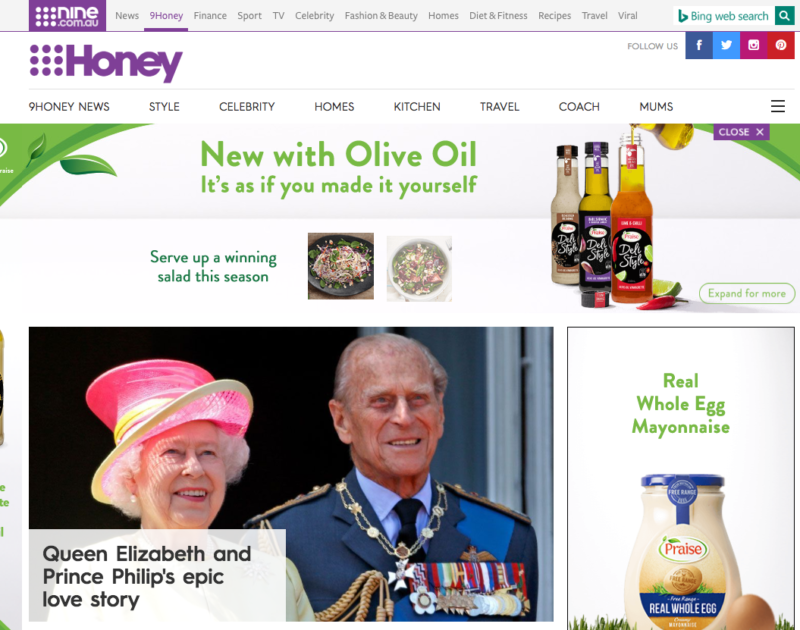
9Honey is set to undergo a revamp next year, but most agencies feel like Nine is most aligned of the three networks
Mindshare’s Lewis says there will still be an important role for television, but argues networks will have to work to ensure audience penetration and efficiency next year.
“As an agency we talk a lot about balancing brand and performance and certainly TV is very important when it comes to that brand space. So you know while the networks continue to work very hard on their addressable product and also on their content like there’s always going to be a very big play for our clients within the TV space.
“It’s going to be consistency of programming and it’s going to be making sure that we can have a schedule for example of sport – so working with the Seven team on Winter Olympics and Comm Games to make sure that we can get the right schedules and the right packaging in front our clients that do allow them to get that all across screen at the right price.”
Corones expects some contraction in the move from linear to video platforms. He says it will be important for networks to improve their capabilities across assets, but warns media companies of the danger which comes from a quickly moving market.
“At some point you really got to create a step change in what you’re doing. If you’re going to survive this disruption that’s going on as more and more streaming services come into the market.
“It all comes down to what what content can you be putting in front of consumers that’s going to really rate and appeal to them and then do you have control over that format, that program, in how it gets released to consumers.
“Anyone who has been exposed to a streaming service like Netflix or a stay home all of a sudden the benchmark around how you consume content changes, so it’s about keeping pace with what’s happening in that space as well as making sure that you’ve got a content pipeline that lives up to it.”



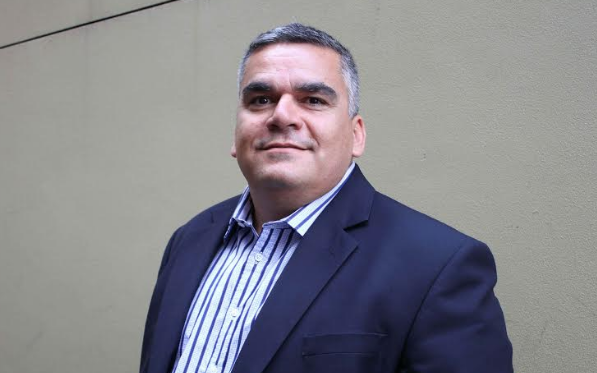
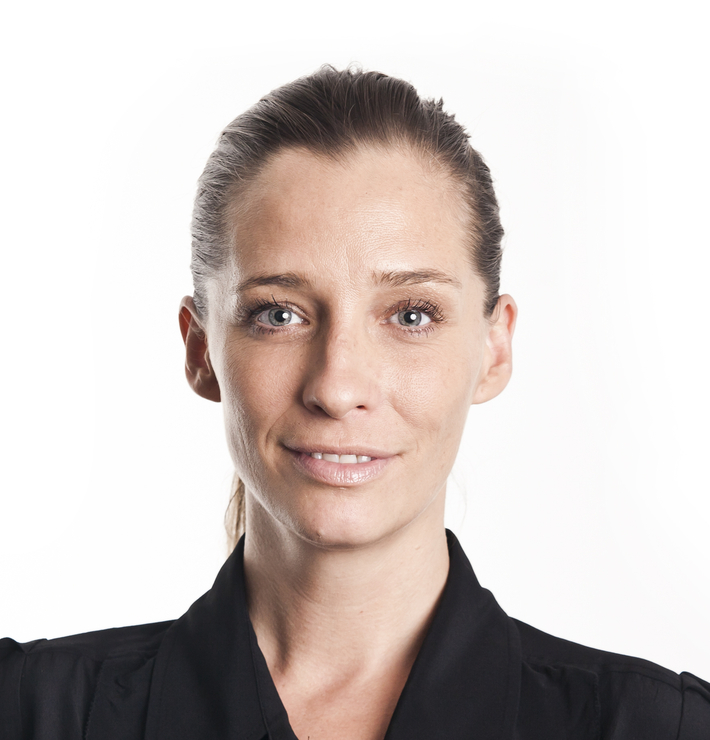
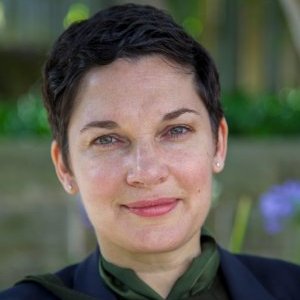
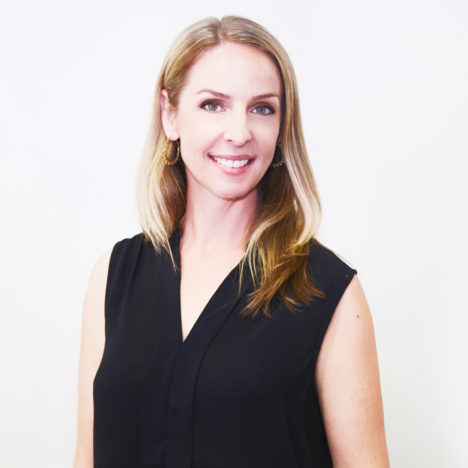
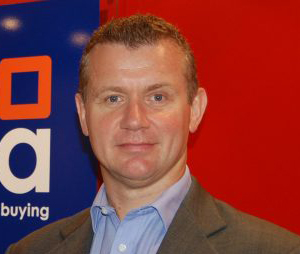
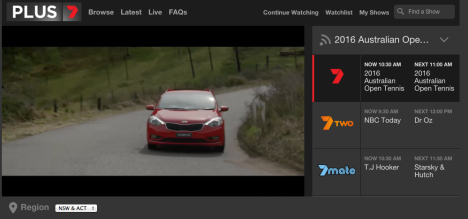

Zoe,
It appears you’ve forgotten SBS, Australia’s hybrid funded broadcaster.
Our thought provoking content sets the national debate on a range of topics.
It would be good to get a complete view of the market, not just part of it.
Andrew Cook
Director of Sales
SBS Media
Hi Andrew,
We would never forget SBS as both yourselves and the ABC are important parts of Australia’s media’s landscape. However, the interviewees focused on the three commercial networks and the mentions of SBS were cut by me when editing the story.
So the responsibility for SBS not being mentioned is mine, I’m afraid.
Regards,
Paul Wallbank
News Editor
There was close to 500 people at our Sydney upfronts alone, proving there is a growing interest in SBS content on both our TV and digital assets.
Add the Socceroos qualification to The FIFA World Cup that is EXCLUSIVE on SBS for Free to Air and I think readers would be interested in the media experts view of our offer complimenting the other Free to Air networks great content for 2018.